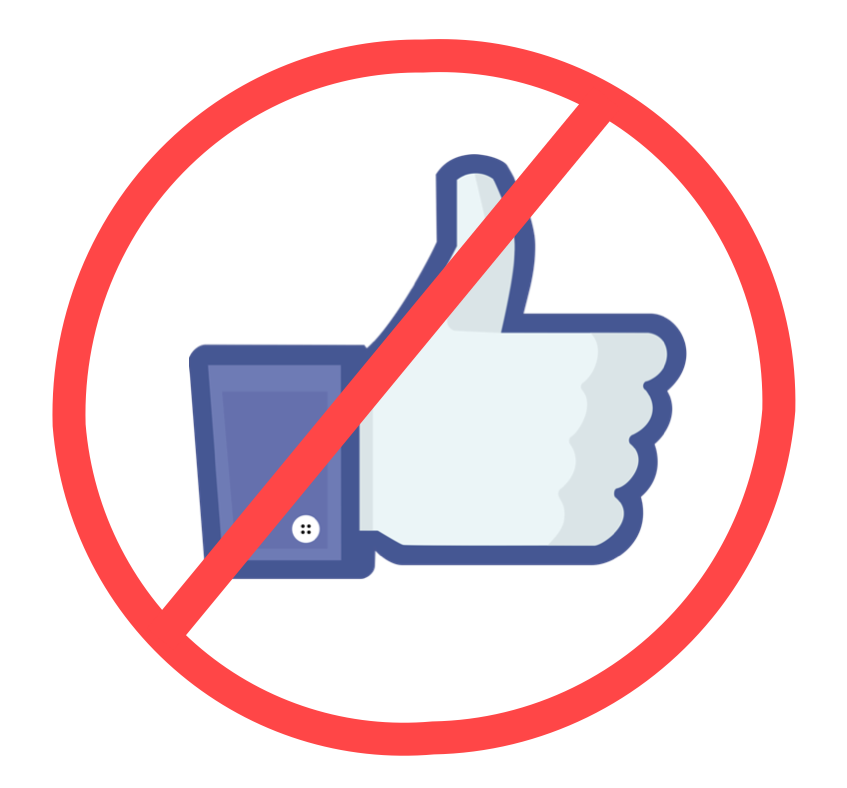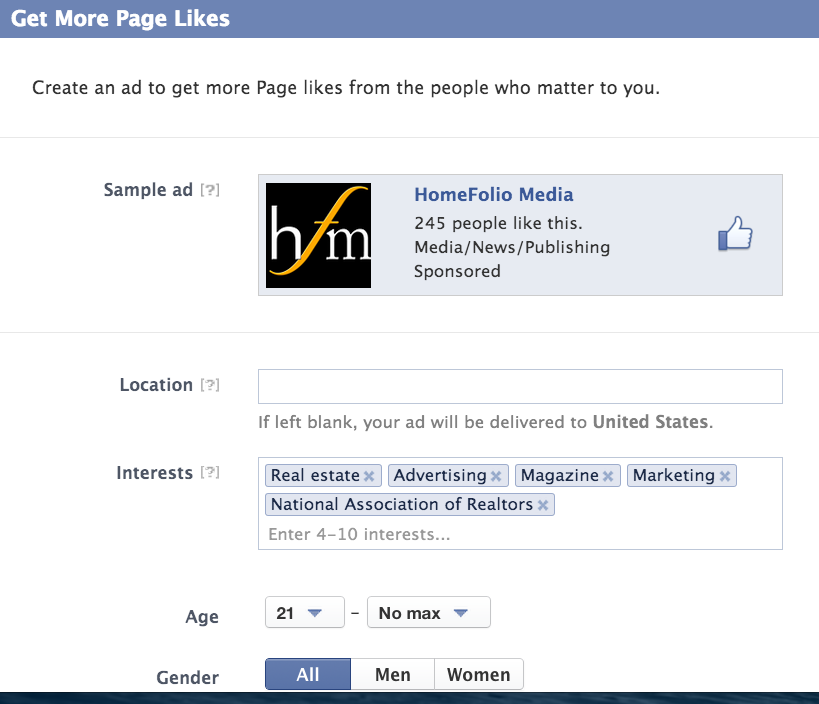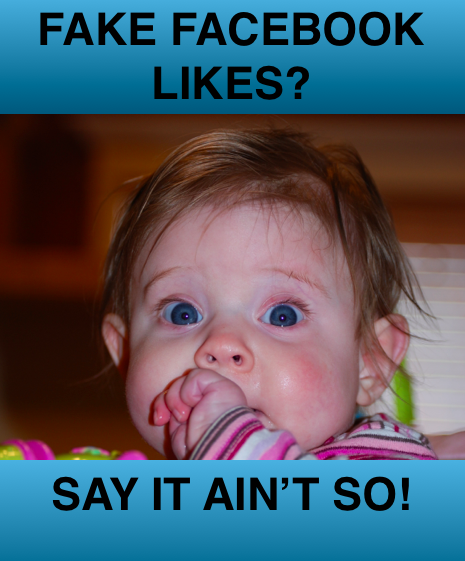 Recently, we explored the underground world of online marketing in our post The Dark Side of Social media. We discovered that some businesses engage in illegitimate practices such as buying fake “likes” or followers to appear more popular. Recent news has revealed what Facebook and ethical companies are doing to counteract these black hat schemes. With advertising horror stories popping up all around, many of us are left with the pervading question– is it safe to advertise on Facebook? Let’s look at the evidence and let it speak for itself.
Recently, we explored the underground world of online marketing in our post The Dark Side of Social media. We discovered that some businesses engage in illegitimate practices such as buying fake “likes” or followers to appear more popular. Recent news has revealed what Facebook and ethical companies are doing to counteract these black hat schemes. With advertising horror stories popping up all around, many of us are left with the pervading question– is it safe to advertise on Facebook? Let’s look at the evidence and let it speak for itself.
Advertising Frustration:
Picture this: You’re a Realtor that joins Facebook because –let’s face it– you have to be on there! Still, you aren’t happy with the 40 likes your page has accumulated (especially if most of them are related to you). Your goal is to attract potential customers that you can engage with in an authentic way. You have heard of illegal third party sites like wesellikes.com and want NOTHING to do with dishonest promoting.
While examining the likes on your Facebook page (or lack thereof), you ask yourself in heightened frustration, “how can I promote my page? I have already invited all my Facebook friends, prospects and sent emails to my contacts! There must be another way?” Then– like an answered prayer– you notice a glaring button on the upper right hand side of your page. Could this be the solution to all your problems? It reads “promote page.” You decide to click on this “magic button” and the following image appears:  When you scroll down far enough you notice a section that reads for only $10 you can get anywhere from 21- 41 more likes a day! Now you are kicking yourself and thinking: “What? In just 24 hours I could double my amount of page likes? Why didn’t I think of this before? All that wasted hard work and it’s as simple as paying a few dollars? Since this is advertised through Facebook it MUST be legitimate!” You proceed to pull out your credit card and are ready to begin your first campaign. You begin to enter in your digits and– WAIT! Not so fast! Yes– advertising through Facebook is the only legitimate way to promote your post. Unfortunately, that does NOT mean those who advertise through Facebook are safe from fraud.
When you scroll down far enough you notice a section that reads for only $10 you can get anywhere from 21- 41 more likes a day! Now you are kicking yourself and thinking: “What? In just 24 hours I could double my amount of page likes? Why didn’t I think of this before? All that wasted hard work and it’s as simple as paying a few dollars? Since this is advertised through Facebook it MUST be legitimate!” You proceed to pull out your credit card and are ready to begin your first campaign. You begin to enter in your digits and– WAIT! Not so fast! Yes– advertising through Facebook is the only legitimate way to promote your post. Unfortunately, that does NOT mean those who advertise through Facebook are safe from fraud.
Illegitimate vs Legitimate Advertising:
For example, if you decide to advertise the illegal way and use 3rd party sources to increase your audience, your page will grow in likes, but they will be by fake users. Most of these bogus accounts come from “click-farms” based in developing countries where workers are paid $1 for every 1000 profiles they like. Click farms aim to defraud legitimate advertisers by promising vast numbers of cheap clicks that would otherwise not occur. Workers will basically like ANYTHING they come across, so they will not look suspicious or appear to be fake due to non-activity. At the click farms, they create fake accounts with bogus names, little information and vague profile details. Many of the time, they use fake pictures, and it is all in attempt to hide the companies identity.
The disturbing news is, legitimate advertisers on Facebook are also affected by click farms. According to the SF Gate, these advertisers can attract a fake following through fraudulent clicks on geo-targeted ads or by random clicks that try to appear authentic:
Genuine advertisers attract fake clicks in two ways: Directly, through fraudulent clicks on their ads; and indirectly, when click farms try to camouflage their fake user profiles by clicking randomly on whatever ads are targeted at them.
Poorly geo-targeted campaigns are even more susceptible to click farms schemes. In simple terms, businesses who pay money to advertise the “right way” are not safe from these scams.
Does Facebook Have Ways of Protecting Against Fake clicks?
Facebook has worked to identify and deactivate bogus accounts. On their recent annual report they reported that 0.4% – 1.2% of all Facebook users were fake accounts. Still, businesses are falling prey to click farms and accumulating more fake likes then ever. So how do businesses know when fake accounts have liked their pages? They don’t know.
Contrary to most social sites, Facebook forbids click audits by third party businesses like Ernest and Young, The Media Ratings Council and the IAB. This means advertisers have no way to determine which clicks are genuine and which are fake. Marketers are left to believe and rely upon Facebook’s audit system- even if they differ greatly from other ROI platforms such as Google analytics.What’s worst, Facebook has no way of deleting fake accounts in bulk. It ONLY allows you to delete a few dozen of the most recent likes. Otherwise, businesses are stuck with a fake following.
Many companies, do not find this out until after they’ve invested money in Facebook’s advertising campaign. This was the case for Raaj Kapur Brar a business owner of a fashion magazine. He ran into this issue after he invested nearly $600,000 dollars in marketing expenses. He noticed that many of his new followers where from bogus accounts and was appalled when his request for third-party server audit was denied:
‘”I asked Facebook, can you provide any third-party evidence besides your own server analytics? Because we’re losing money here right now. They said no, we’ve checked our systems and no one else reported any issues…I have to take your word for it?’ Brar said. ‘It was ‘thank you for your money, no we’re not wrong, all the other third parties are wrong.'”
Case in point: If you pay money to advertise on Facebook, expect to gain fake likes, and know that you have on way to screen against them.
How Fake Likes are Ruining Your Marketing Campaign:
Ok, so who cares that I have fake followers? As long as I appear to have 50,000 likes, I’ll look good right? The answer is yes, and no. You might appear to have a huge following, but your engagement will go down considerably— and you will have a harder time reaching your target audience .
When Facebook distributes a post, it only shows it to a few people that have liked your page. If that post is liked by these followers, they will then distribute it to more people and the cycle continues. If you have a large fake following, it will be distributed mostly to those bogus accounts– and the people you actually WANT to reach will remain untouched. One way to remedy this problem is to pay money to “boost(promote)” your post. But, who wants to pay money to reach fake followers you never intended to acquire in the first place?
Is it Safe to Advertise on Facebook?
Again we return to the question: Is it safe to advertise on Facebook? If you want tons of fake followers, increased difficulty in reaching your target audience and little to no engagement– then yes– throw out the $100 dollar bills! As for me, I will definitely think twice before handing Facebook my credit card information.
click here to see a video about Facebook Fraud:
*Did this post help you in any way? SHARING IS CARING! Be sure to pass the information along or leave a comment and question if you have any. We would love to hear from you!*
- Proof a Fish is Smarter Than Your Audience - January 29, 2015
- How to Write Successful Real Estate Headlines for Increased Sales - September 30, 2014
- 16 Blogging Mistakes Realtors Can Avoid to Improve SEO - August 21, 2014




Leave a Reply